Victim of science: how a psychologist couple made their son a test subject in an experiment with a chimpanzee
Categories: Animals | Children | North America | Science
By Pictolic https://pictolic.com/article/victim-of-science-how-a-psychologist-couple-made-their-son-a-test-subject-in-an-experiment-with-a-chimpanzee.htmlIt is believed that parents wish their child only the best. But a family of scientists from New York made their own son a victim of science. The Kellogg couple conducted a cruel experiment, forcing little Donald to grow up with a chimpanzee. They wanted to see how humanized an animal could be. Unfortunately, it turned out the other way around. The terrible study ended very sadly. Find out what happened to the experimental baby from our material.
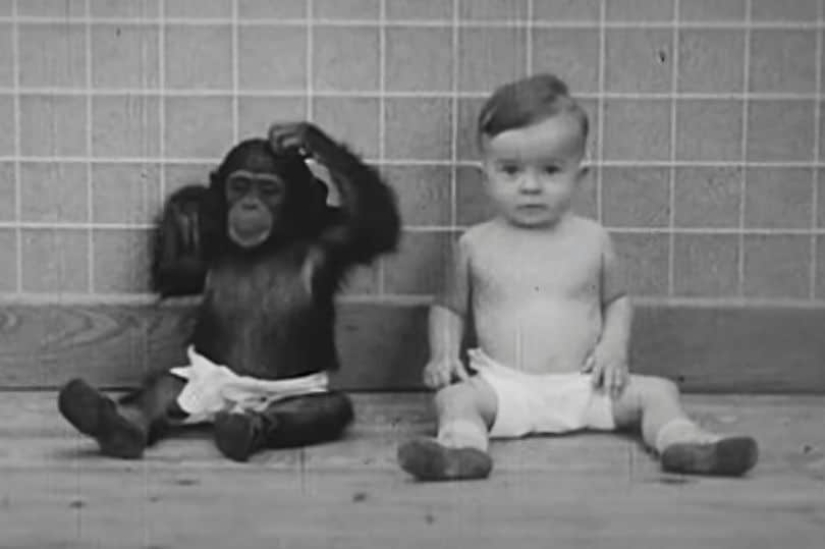
Little Donald grew up with a monkey. His parents forced him to undergo various tests during this cruel experiment. As a result, the behavior of the boy, not the chimpanzee, changed.
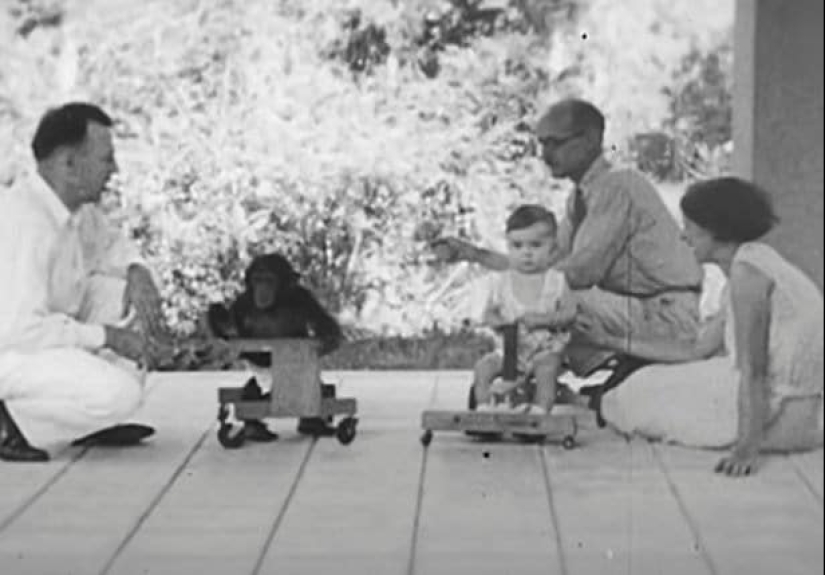
Spouses Luella and Winthrop Kellogg (Winthrop and Luella Kellogg) were psychologists. They conducted research studying the behavioral reactions of animals. In 1931, the parents brought home a baby chimpanzee. The little female was supposed to play the role of a sister for their son Donald.
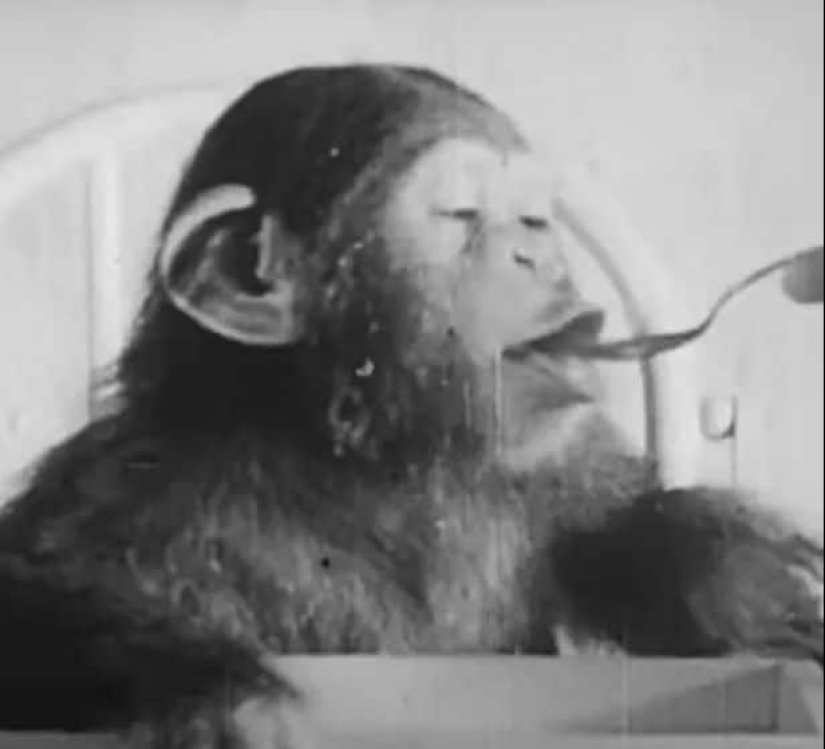
A pair of scientists named the monkey Gua and began a creepy experience that was supposed to last five years. They were going to watch how a child and a chimpanzee would be brought up together in a human environment. The couple wanted to compare and understand how humans and monkeys react to the same developmental conditions.
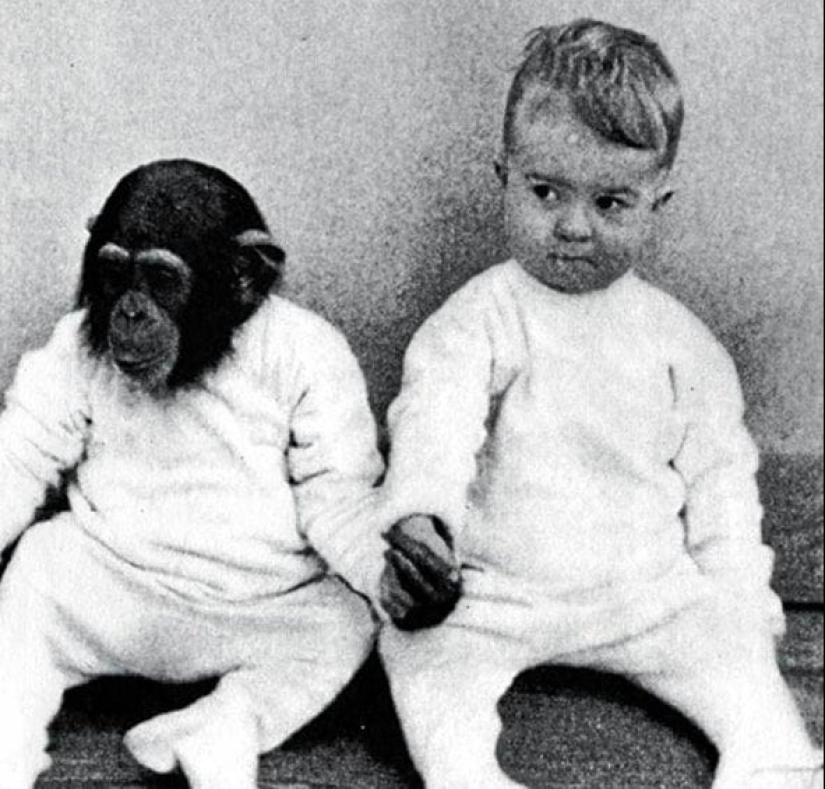
Luella and Winthrop expected the primate to humanize, but the opposite happened. When the study began, Gua was 7 months old and Donald was 10. Their parents talked to them as if they were children. The child and the monkey slept in the same beds and played with the same toys. They were dressed, fed and punished the same way.
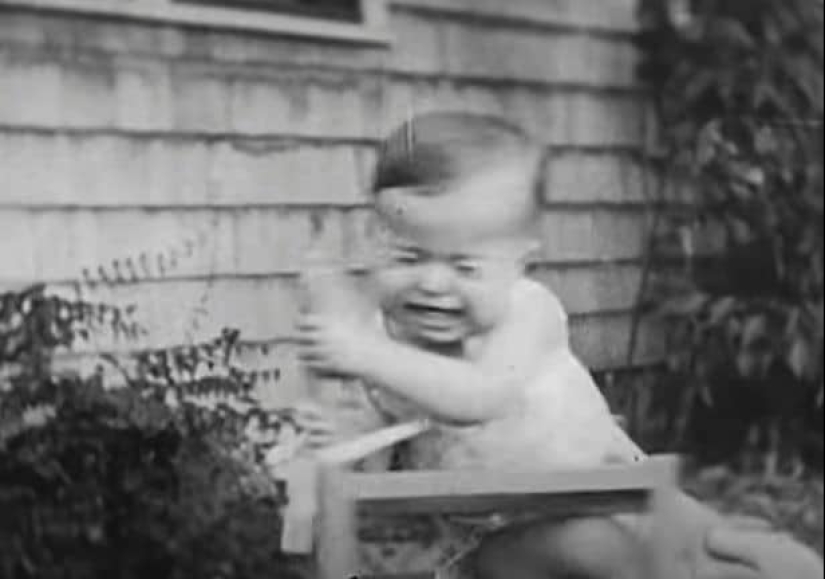
Some of the tests were very disturbing. The photos show how badly the boy and the monkey react to prolonged rotation. Donald was tightly tied to a chair, which was actively rotated around its axis. The bullying stopped only when the baby started crying.
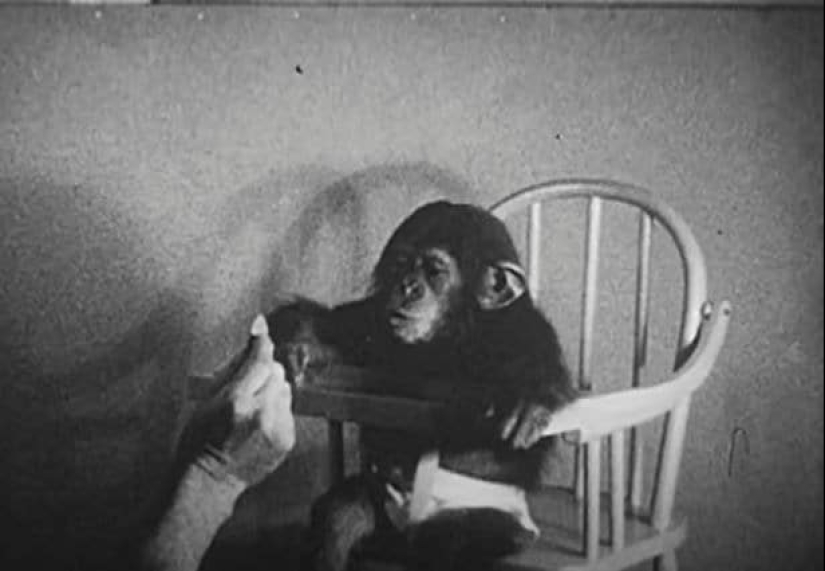
Another cruel test is the reaction to loud noises, including a shot. The mother and father also beat the son and the monkey on the heads with spoons. So they tried to hear the difference between the sounds of blows on their skulls. Psychologists conducted test after test for 12 hours a day, seven days a week.
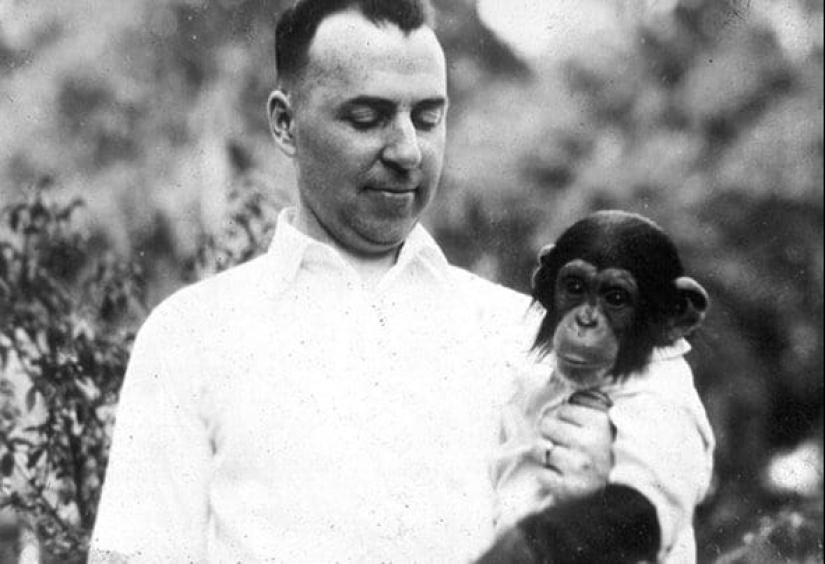
The proud father published the book "The Monkey and the Child" in 1933. Surprisingly, the chimpanzee Gua passed the tests more successfully than the boy. Everything changed when Donald turned one year old. And although the monkey was more developed physically, she could not compare with the child in mental development. The kid began to formulate words, and Gua would never be able to talk.
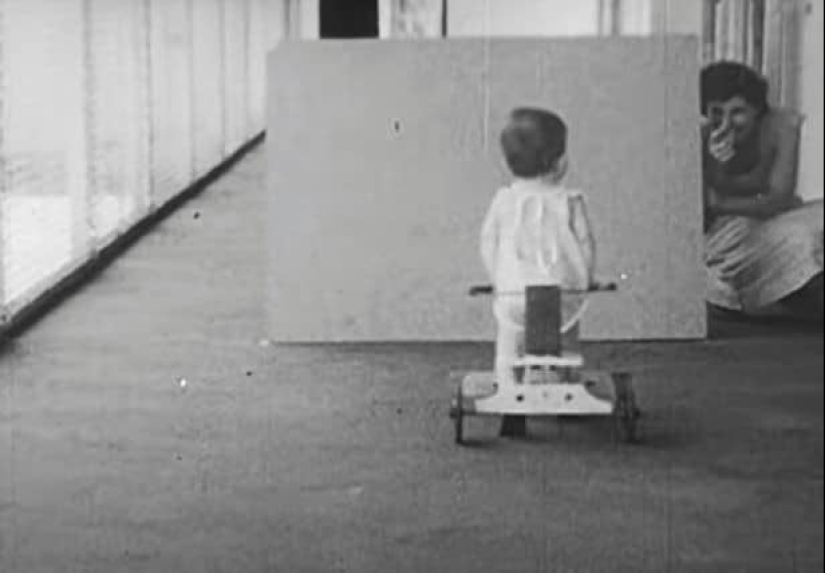
Soon serious concerns began to arise in the circles of American psychologists. Scientists sounded the alarm when the experiment ended ahead of schedule. The monkey was returned to his native zoo, where he was gradually rehabilitated and adapted to life among his relatives. The exact reason for the early termination of the study, the Kellogg couple did not indicate.
Most assume that Luella began to be afraid when she saw her son turn from a man into a monkey. The boy started biting, walking on all fours and making grunting sounds when he wanted to eat.
Winthrop went on to work at Florida State University studying dolphin behavior. Donald's fate was tragic: he committed suicide at the age of 43, a year after the death of his parents in 1972.
Most often, animals become victims of cruel experiments. The fate of the chimpanzee Nim Chimpsky became just as sad. Scientists wanted to teach the monkey sign language.
Recent articles

It's high time to admit that this whole hipster idea has gone too far. The concept has become so popular that even restaurants have ...

There is a perception that people only use 10% of their brain potential. But the heroes of our review, apparently, found a way to ...

New Year's is a time to surprise and delight loved ones not only with gifts but also with a unique presentation of the holiday ...